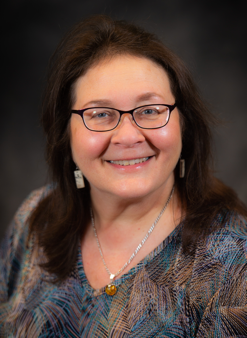American Psychological Association Division 50

It’s that time of year where we start to see what really might happen in Congress. Bills that survived review by members and committees on each side of the Capitol in spring are now receiving review on the other side, having details worked out and balanced. This means you may hear things like “The house passed HR” or “the senate passed S” – but the job is not done. Now the proposed bill has to travel and clear the other side or be reconciled with similar bills. So, the job is not done. This is why you still may be receiving emails telling you about action alerts where you can write a letter to express your opinion on a bill. And this may be why it will say to write a Representative on an S (Senate) bill, or a Senator on an HR (House of Representatives) bill, or even a committee tasked with reconciliation or other review.
Items making their way to us from APA were discussed at the annual Practice Leadership Convention (PLC) in Washington, DC from March 9-12. The theme of the meeting was Advocacy and Leadership. I attended in my role as a division Federal Advocacy Coordinator (FAC). But the meeting has many other attendees. There are FACs for each state and territory – who hold their roles in their state psychological association. There are also state psychological and territorial associations (SPTAs) Chief Executive Officers, SPTA Director of Professional Affairs, state association Presidents and President-Elects, Diversity Delegates, Early Career Psychology Delegates, Graduate Student Association Presidents or President-Elects, and sometimes even Presidents or President-Elects from the larger chapters of state associations.
Items addressed at the meeting included discussion of the new organizational structure of American Psychological Association (APA), including the launching of the APA Services, Inc. and closing of the APA Practice Organization. The new Chief Advocacy Officer, Katherine McGuire introduced herself and her task of bringing all the advocacy silos at APA under one department. Information was also presented on the new APA Advocacy Coordinating Committee (https://www.apaservices.org/about/advocacy-committee ) which happens to have at least four psychologists on there who work in addiction psychology (Go Team!). A little more addictions flavor was added to the meeting by Cynthia Moreno Tuohy, CEO of NAADAC, who attended to get the word out about the master addiction counselor (MAC) credential for psychologists via an information table and a roundtable presentation we completed together. Legislative items for hill visits focused on the Medicare Mental Health Access Act, the Mental Health Telemedicine Expansion Act, and preservation of coverage for substance use and mental health treatment in line with mental health and addiction parity and gains made in the Affordable Care Act. Teams of psychologists, SPTA directors, students, and staff from APA/APASI worked together to do more than 260 meetings with members of Congress.
To find opportunities to participate in current APA/APASI advocacy efforts visit the Federal Action Network (FAN) link which also provides a summary of advocacy issues in APA’s focus (http://cqrcengage.com/apapolicy/). There is also a link where you can sign up for updates online (http://cqrcengage.com/apapolicy/app/register?1&m=11732 ). One example of an item that signing up might get you the early word on are news like the May 31 public hearing the Food and Drug Administration (FDA) held regarding regulation of cannabidiol (CBD) where two APA members (Drs. Ryan Vandrey and Elise Weerts) argued for immediate regulation covering CBD content labelling, quality control standards, manufacturing practices, and a program of regulatory science for cannabis derivatives.
As you might be noticing, I am trying to emphasize the many ways psychologists may advocate for good through the application of psychology. Don’t think it’s only one role, or writing bills, or visiting elected representatives. It’s also leadership in your profession and community, publishing your work, bringing your science to the attention of the public, encouraging colleagues to use best practices and be proficient, and even training students to be aware of advocacy as part of what psychologists do as part of their work. Another thing that is important to notice is that it’s a coordinated effort. The lone ranger does not get the law written; it’s a collaborative process that follows strategy and involves teamwork. So, if you want to be involved, please do check out these links. As always, be in touch if you have questions about any of this information. If you are working an advocacy project related to addictions treatment, education, training, or policy, I am happy to discuss ideas or help you connect to other advocates or get engaged with advocacy activities at the local, state, and federal levels. Reach me at napiotrowski@yahoo.com. Be aware too that I will be attending the APA convention in August. If you would like to “talk advocacy” find me at one of the poster sessions or let’s have coffee while we are there. Note too that I am going to be holding some conference calls on advocacy topics this fall. If you are interested to attend or have a particular topic about which you want to know more, let me know.
Resource Information
APA Advocacy Coordinating Committee
https://www.apaservices.org/about/advocacy-committee
APA Federal Action Network
http://cqrcengage.com/apapolicy/
FAN Sign Up for Updates

Resources are available for those struggling with addiction and numerous effective treatments exist. Whether you are looking for help for yourself or a loved one, we encourage you to seek out help.